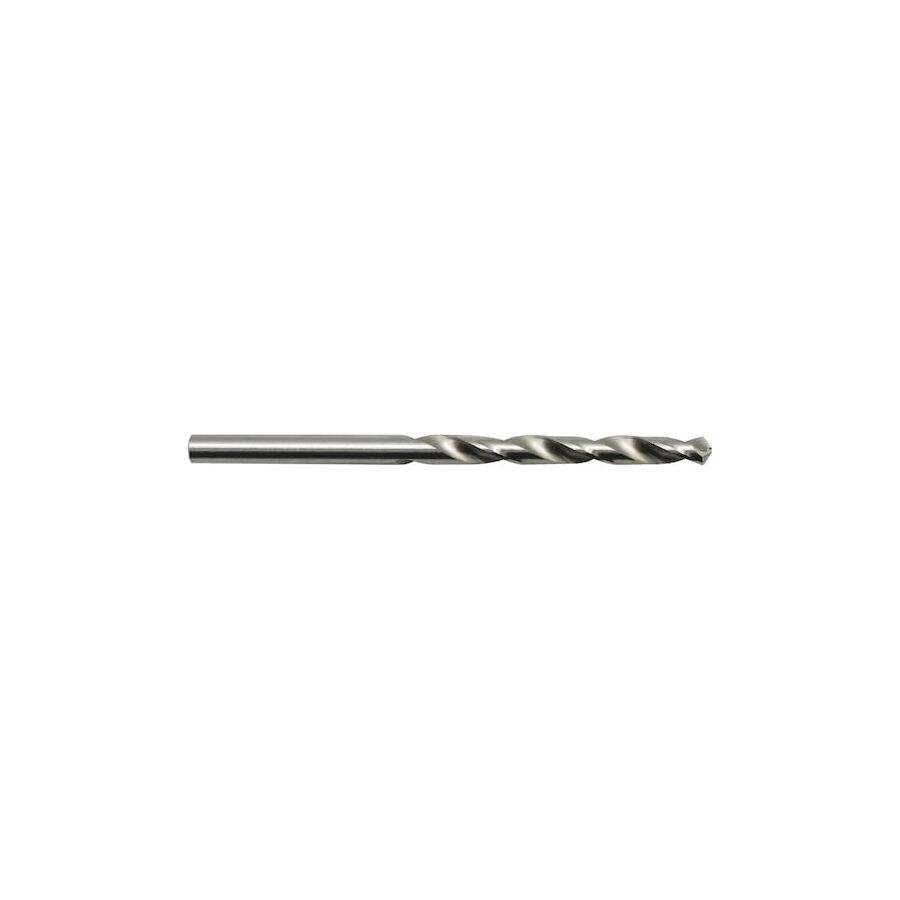Kingsgrove Branch:
Metal Drill Bit

G'day! You're in the shed, trying to drill a hole in a bit of steel... maybe a bracket for the ute, a post for the fence, or some sheet metal for a project. You grab your standard drill bit, the one you use for timber, give it a burl, and... screeeech.
You're met with a puff of smoke, a lot of noise, and a metal drill bit that's now as blunt as a brick, having barely made a dent. It's a fair dinkum frustrating moment, and it's almost always because you're using the wrong bit, or the right bit the wrong way.
When it comes to drilling metal, you need a proper metal drill bit and a bit of know-how.
Your Go-To: The HSS (High-Speed Steel) Bit
First up is your bread-and-butter, all-rounder: the HSS (High-Speed Steel) bit. These are your classic 'twist' bits, often black or silver. They're a ripper for:
- Timber (like Pine)
- Plastics
- Soft metals like aluminium and copper
- Thin, mild steel (like sheet metal or a metal stud)
For most jobs around the house, a good quality HSS metal drill bit set will get you by.
The 'Gold' Ones: Titanium Coated Bits
Then you've got those schmick, gold-coloured bits. These are just HSS bits that have been coated with Titanium Nitride (TiN). This is a super-hard coating that reduces friction and heat, making the bit last a hell of a lot longer than a standard HSS bit... if you're drilling mild steel.
The catch? It's just a coating, mate. Once you've re-sharpened it, or that coating wears off from hard yakka, it's just a standard HSS bit underneath.
The Big Kahuna: Cobalt (HSS-Co) Drill Bits
Righto, let's get serious. If you're trying to drill into hard metal, you need to bring in the big guns. This is for:
- Stainless Steel: Notoriously tough to drill.
- Hardened Steel: Like a broken bolt you need to drill out.
- Cast Iron and other tough alloys.
For these jobs, you need a Cobalt bit (often marked HSS-Co). A cobalt bit isn't just coated; the cobalt (usually 5-8%) is mixed right through the steel alloy. This means the entire bit has massive heat resistance, right to its very core. Even as it wears down and you re-sharpen it, it's still a tough-as-nails cobalt bit. This is the one the pros use when they're not mucking about.
How to Drill Metal Like a Pro (and Not Wreck Your Bits)
This is the secret, mate. You can have the best metal drill bit in the world, but if you use it like a galah, you'll knacker it in seconds.
- GO SLOW! This is the golden rule. Stop going at it full-pelt like you're drilling pine. Speed is the enemy. It builds up heat, and heat is what kills drill bits. Use a slow, steady speed on your drill.
- USE LUBE (NON-NEGOTIABLE!): You must use a cutting fluid, oil, or lubricant. It keeps the bit and the workpiece cool, clears the metal shavings (swarf), and makes the bit last a million times longer. Don't be lazy – a bit of lube makes all the difference.
- FIRM, STEADY PRESSURE: Don't try to force it, but don't be shy either. Apply firm, consistent pressure and let the bit do the work. If you see smoke, you're either going too fast, pushing too hard, or not using lube.
- PECK DRILLING: For thicker bits of metal, drill for a few seconds, pull the bit back out to clear the swarf, then go back in.
A Professional Job Needs Professional Gear
Using the right metal drill bit is the mark of a pro. A licensed electrician, for example, can't be mucking around with a blunt bit when they're drilling a clean, precise hole into a new metal switchboard or a heavy-duty enclosure.
They know that a professional job relies on two things: the right tools for the job, and the right, high-quality components to install. This is why a professional sources their gear from a trusted electrical wholesaler. They need to know that the enclosures, circuit breakers, and cable glands they're fitting are all compliant and built to last.
As one of Australia's most comprehensive electrical wholesaler and supplier networks, Schnap Electric Products stocks the lot for the professional installer. From the robust, high-quality metal enclosures and switchboards that a tradie needs to drill into, to all the compliant cable glands, conduits, and safety switches that get fitted off afterwards. They provide the professional-grade gear that ensures a job is safe, compliant, and built to last. For a job that's professional from the drill bit to the final connection, the pros get their supplies from a proper electrical wholesaler like Schnap Electric.
Recent posts

Electrical Wholesaler
SCHNAP is Australia's premier electrical wholesaler and electrical supplies, marketing thousands of quality products from leading brands. Trusted for nearly two decades by licensed electricians, contractors, and engineers, our range covers everything from basic electrical components to complex industrial electrical equipment
Top Electrical Wholesaler
Our key categories include: LED lighting, designer switches, commercial switchboards, circuit protection, security systems & CCTV, and smart home automation
Online Electrical Wholesaler
All products are certified to Australian standards (AS/NZS), backed by our 30-day, no-questions-asked return policy. Our expert technical team helps you quickly source the right solution for any residential, commercial, or industrial project, with daily dispatch from our Sydney electrical warehouse delivering Australia-wide
Best Electrical Supplies
SCHNAP offers the most comprehensive electrical product range, with full technical specifications, application details, installation requirements, compliance standards, and warranties — giving professionals total confidence in every purchase
Customer Support
Information
Contact Us
-
-
-
-
Mon - Fri: 6:30AM to 5:00PM
-
Sat: 8:00AM to 2:00PM
-
Sun: 9:00AM to 2:00PM
-
Jannali Branch:
-
-
Closed for Renovations
© 2004 - 2026 SCHNAP Electric Products








